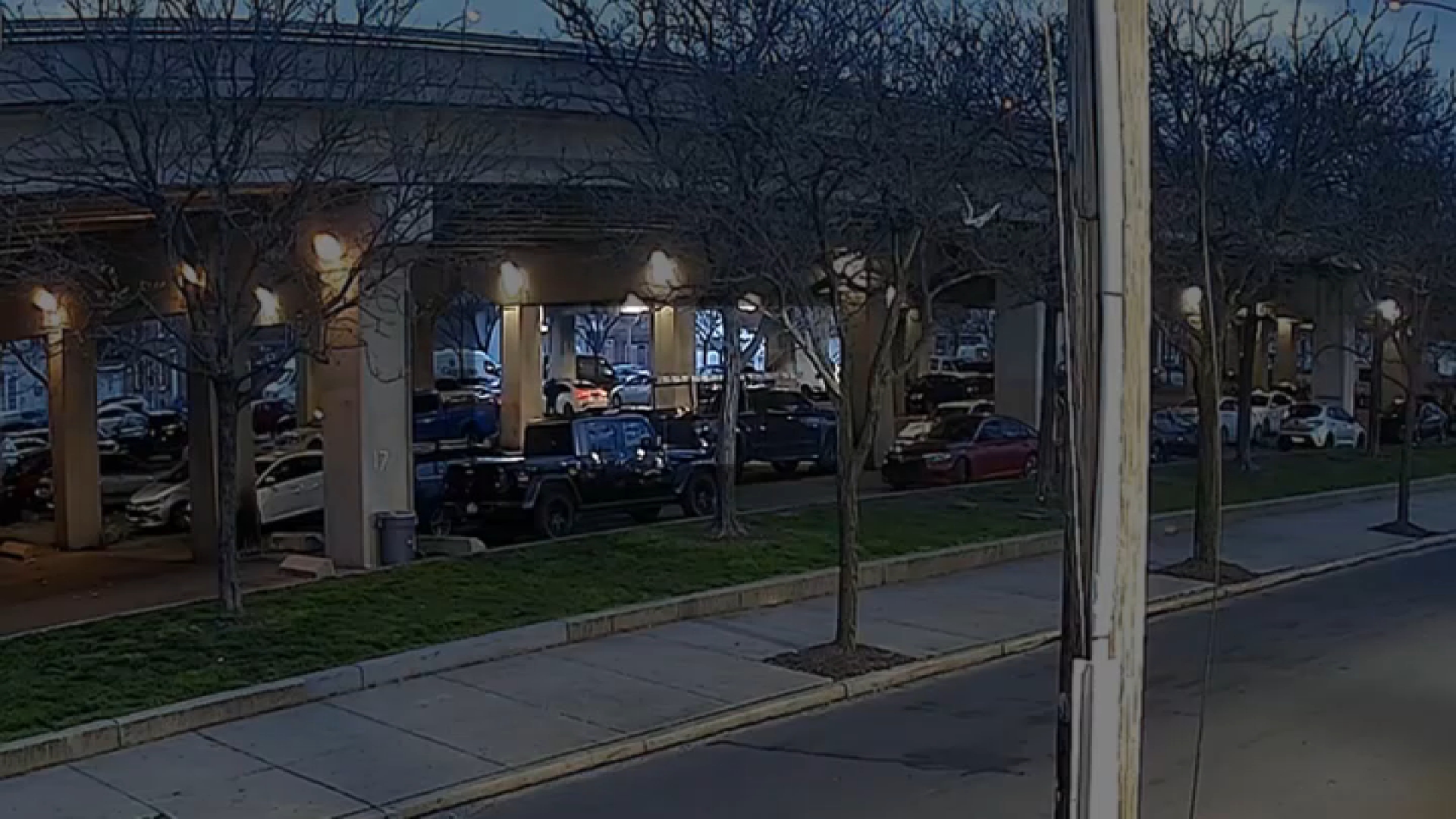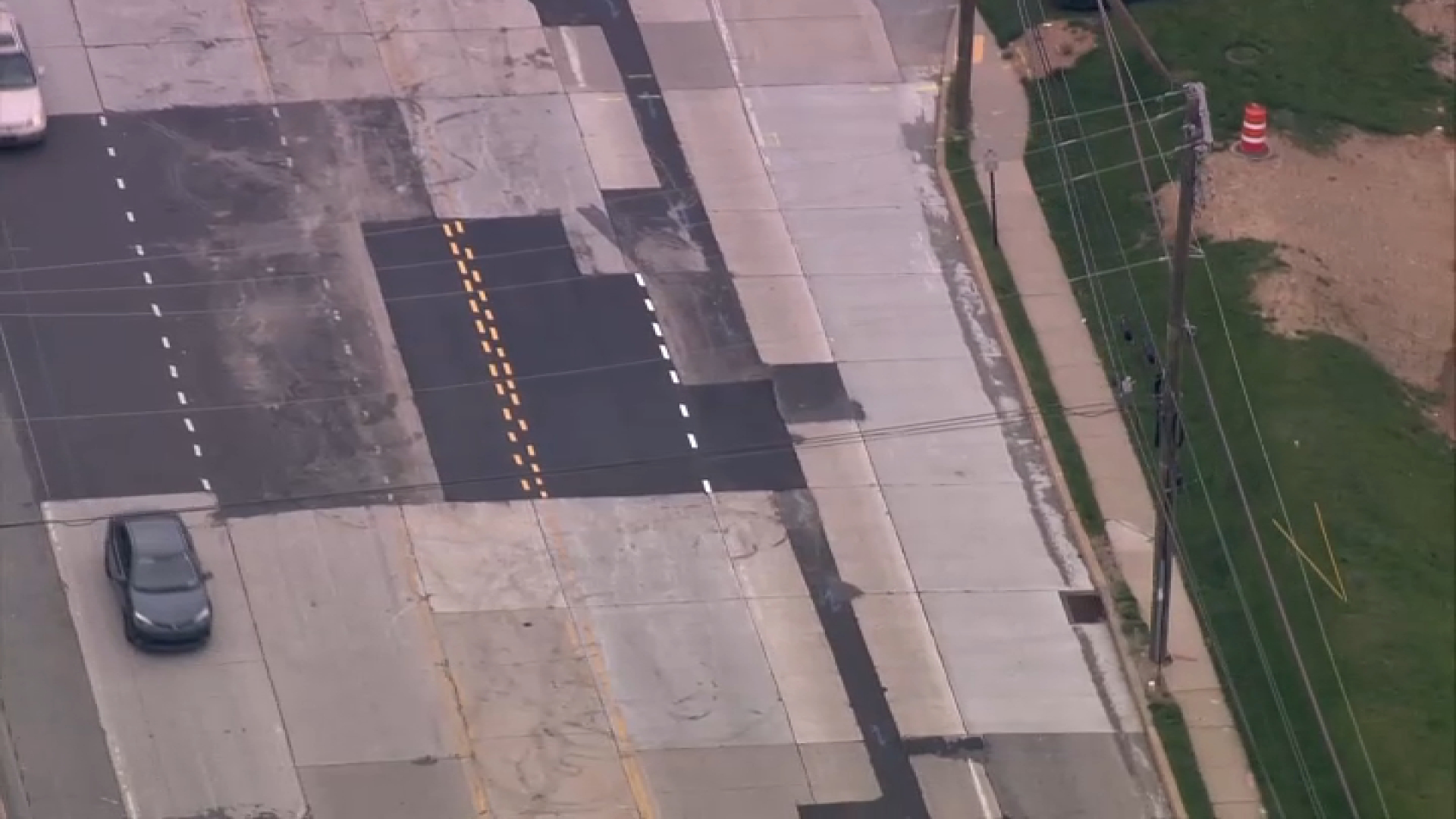It was March 11, 2010. A typical day where April Phillips worked from her home in Gettysburg as a transcriptionist for Hanover Hospital. Her husband, Rick Phillips, a police officer for Eastern Adams Regional Police Department, kissed his wife and two step-daughters goodbye, like he always did, and headed out to work his 5 p.m. to 3 a.m. shift.
During his dinner break, Rick called April to let her know he would be working his normal traffic enforcement for the rest of the night.
April told him to be careful and that she loved him, just like any other day.
"You just don't know about the future," April said.
Later that night, a knock on the door woke April up at 12:45 a.m. Two police officers told her Rick had been in a serious accident.
Rick, who had been a police officer for about 15 years, had been involved in a high-speed pursuit. The chase ended when he crashed into a tractor-trailer.
Rick broke facial bones and his leg and sustained a traumatic brain injury. After the crash, he wouldn't live full-time in his home again for five years, and his career as a police officer - one that he loved - would be over.
Local
Breaking news and the stories that matter to your neighborhood.
"I miss my job there a lot," he said. "I loved that job."
"Since he left, I don't think we ever really recovered," Eastern Adams Regional Police officer Shawn Cuffley said.
That night on March 11, 2010, Rick attempted to make a traffic stop but was soon in pursuit of the car he tried to pull over. While traveling on Route 30, the car ran a red light at the Route 94 intersection in Cross Keys. Rick continued through the red light, and his police cruiser crashed into a tractor-trailer. The car he was pursuing kept going.
April was in shock when she heard the news and immediately went to York Hospital with her twin 11-year-old daughters.
"Just imagine being woken up from a sleep at that time of night home alone," April said.
When April arrived at the hospital, Rick was getting a CAT scan. She was sent to the trauma waiting room. Doctors told her what they knew about his brain injury and said Rick would soon go to the operating room to have a pressure monitor placed in his head.
When she finally saw him, he was on a stretcher being wheeled to the operating room. April stood at the doorway, and she remembers the doors flying open and seeing blood everywhere. She yelled out that she loved him even though she wasn't sure if he could hear her.
After that, all she could do was cry and pray, she said.
"I still think it's a sheer miracle he woke up and can function the way he can," April said.
It took about a month for Rick to fully wake up. There were moments where he was semi-conscious and sometimes he would remember who April was, but other times he would call her Cindy, who is his sister, April said.
"Awaking from a coma is strange, not like you see in the movies," she said. "It's a gradual process."
When Rick began talking again, doctors called it "word salad," because nothing he said made sense.
It took about six months for him to be able to remember what he had just done an hour before, April said.
Even now, Rick says April knows his memory better than he does.
It took five years from the day of the accident for Rick to return home for good. He spent a total of three years and 4 months away from home. After York Hospital, he went to rehabilitation facilities in North Carolina and Philadelphia.
Rehab mainly worked on his memory issues, but he also had speech, physical and occupational therapy. Rick was also working with specialists when he was at ReMed in Paoli to help him come to terms with the changes in his life, April said.
During those five years, he missed out on a lot of holidays and family events, April said. Whenever Rick was in the Paoli area for treatment or therapy she would go see him every day, and when he wasn't in the area she would call every day.
April made a total of 20 trips to see Rick in North Carolina and drove a total of 28,782 miles when he was in Pennsylvania facilities.
"She was a very busy person," Rick said.
One Christmas, April and her twin daughters, Amber and Brianna Milliken, flew to North Carolina to spend the holiday with Rick.
"I missed my family and friends, but we are all here now though, thank goodness," Rick said.
The crash dramatically altered April's life, too. Her husband was no longer home, she had two pre-teens to raise and the dynamic of the home had changed.
"It's been a complete role reversal in the household," April said.
One of the rehab facilities suggested April seek legal guardianship so she could force Rick to stay at the facility. Otherwise, he could have left on his own, which was not safe at that point.
"It was hard, but I had to think with my mind and not my heart," April said.
Rick is still her full-time responsibility, she said. He requires 24/7 supervision.
He can't drive, and probably will never drive, April said. She has to remind him to take his medication or take a shower. If something happened to her, Rick would have to go back and live in a rehab facility since he will never be independent. She worries about the future.
"But it's all part of my wedding vows to Rick," April said.
Even now that Rick is home, he is still recovering. A therapist comes to his home during the week to take him to volunteer for a few hours.
He has become involved with his community again - after they rallied around the family in their time of need - just in a different way. He volunteers at Shining Stars and at the Brethren Home and April and Rick are looking for more ways to give back, April said.
Shining Stars in Gettysburg provides therapy through horsemanship. Rick and April volunteer together Thursday nights as side-walkers, walking alongside the horse as someone rides, and Rick volunteers during the week to help care for the horses.
"I feed them, water them, brush them, clean their buckets and their stalls," Rick said.
Rick enjoys the side-walking because he said it's fun to be around all the kids.
"It's a great program to be a part of," April said.
Before Rick was an officer in the Eastern Adams Regional Police department, he was an officer in Bendersville. That community decided to name a street after him to show their appreciation for his years of service.
Bendersville Borough Police Chief David Ogel knew Rick for years, even as far back as when Rick was a constable.
Rick knew how to have fun, Ogel said. They would play pranks on each other often.
"Rick was very thorough as a police officer, but he knew how to have fun," Ogel said.
Rick has made strides in his recovery - he still enjoys fishing like he did before - but there is no guarantee of what to expect. Doctors are able to give the family an idea of the severity and can make predictions, but no two brain injuries are the same, April said.
The experience has brought April closer to God and she became stronger in her spirituality.
"God can get you through anything," April said, "because I don't know how else you could go through something like this without having faith."
Amber learned to rely on friends and family through the hard times. Brianna said she learned to not take anything for granted.
As for Rick's future, he constantly talks about wanting to drive again, April said. He has driving tests done every six months by the rehab facility, but he hasn't passed yet.
He processes information slowly and has a slow reaction time, which he realizes, but he keeps trying.
Being able to drive is Rick's biggest goal for his future.
"Don't give up, and don't take anything for granted," Rick said.
'Justice pays'
Six years after the crash, Lance Lester Hawkes was found guilty of aggravated assault, and his sentencing will take place Jan. 9.
"Justice pays, but it just takes a long time to happen," said Rick Phillips, who was an acquaintance of Hawkes before joining the police academy.
In 2013, Hawkes' brother told police that Hawkes told him that he was the one driving the car being pursued by Rick. After he made it through the intersection he looked in his rear view mirror and saw Rick's car blow up, according to an affidavit filed with District Judge Little.
In 2015, Hawkes' brother-in-law told police Hawkes admitted to him, just days after the crash, that he was the one driving the car, the affidavit states.
Now that they know who caused the accident, the family is able to move forward with their lives, April Phillips said.



